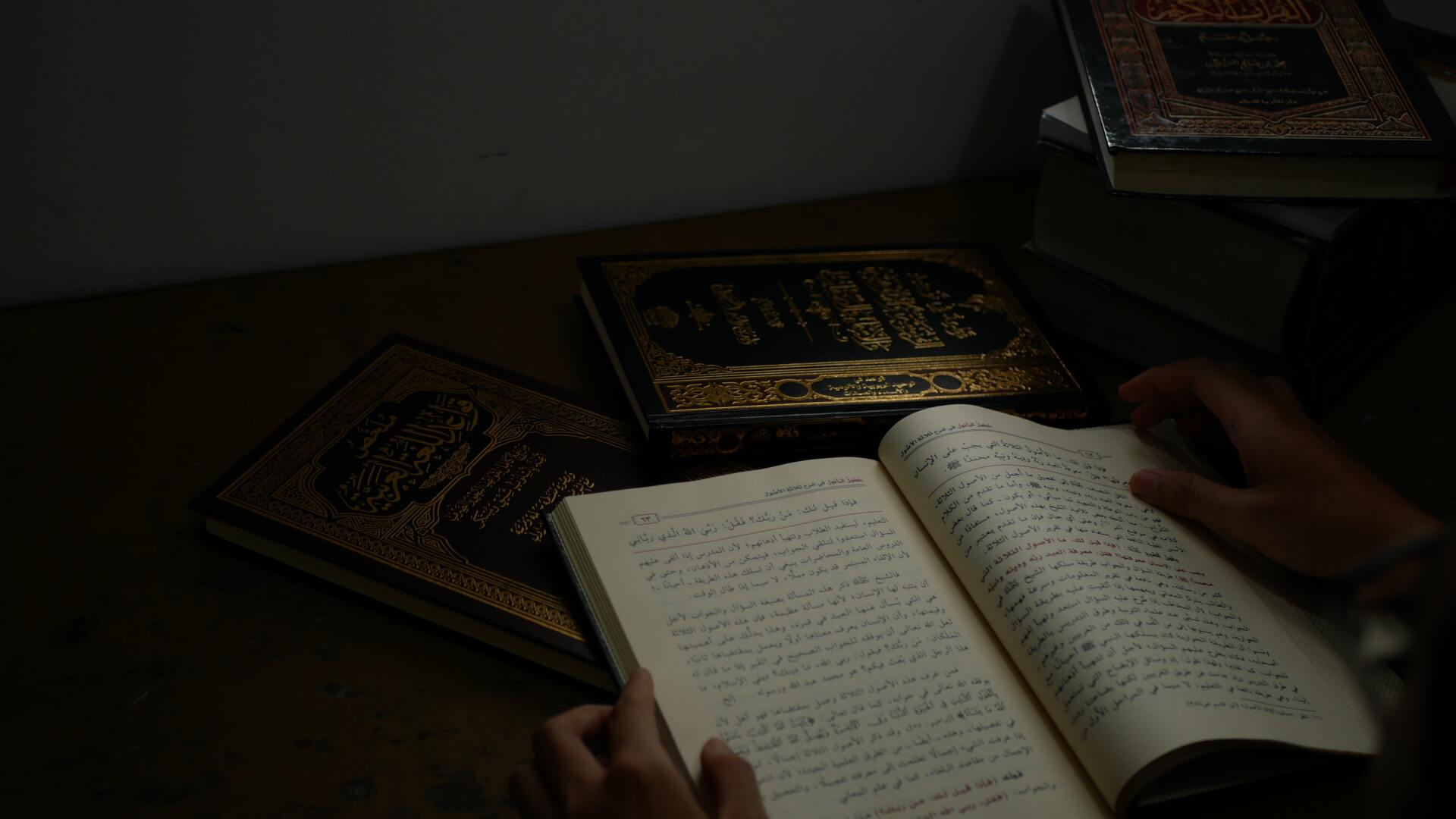1-877-HALAL-WW (+1-877-425-2599)
The Fatwa-Taqwā Challenge
What are the Real Hurdles?

When it comes to choosing between Taqwā or Fatwa, we may unconsciously lean towards "Taqwā." Taqwā – usually referred to as "God-consciousness" - is integral for those aspiring to elevate and maintain their level of spirituality. However, it is nearly impossible to have Taqwā without understanding how the concept of Fatwa fits into our daily practice. In this article, I'll be unpacking the underlying issues one may face, when trying to balance Fatwa and Taqwā. This internal struggle between these two Islamic concepts, will be referred to as the "Fatwa-Taqwā Challenge”. [1]
Considering the Fatwa-Taqwā Challenge, the martyr, Shaykh Muhammad Saʿīd Ramaḍān al-Būṭī says:
"Regardless of how much truth there is to the claim that Muslims have departed from their noble Islamic way of life in recent years, it is my personal belief that the upcoming generation of Muslims possesses a deeper awareness of true Islam and a greater capacity for careful thought and observation than any other modern generation. Hence, it will not be long before we find that such awareness has been transformed into a positive, active movement which corrects distortions, straightens that which has grown crooked, and rebuilds the Islamic edifice from the bottom up." [2]
The first step to understanding the Fatwa-Taqwā Challenge, is to define it. The concept of Taqwā, refers to; 'being conscious and fearful of Allah ﷻ, and abstaining from His prohibitions due to one’s remembrance of, and love for Him'. Fatwa oftentimes is related to abiding by the abstract legal boundaries, or rulings, that have been established in Islam. In other words, the concept of Fatwa, is related to the strict text and rulings, of what we should and should not do as Muslims. Having Taqwa is not only choosing between right and wrong, but doing so, being mindful that you can earn Allah's love, and be saved from His wrath, if you abide by these rules. Another way to look at it may be, the Fatwa (or rule) of praying 5 times a day. You can make sure you make each prayer on time - and in the proper way - but doing so, with the consciousness of Allah ﷻ, is related to your level of Taqwa.
In the words of the Messenger ﷺ,
"What is lawful is evident and what is unlawful is evident, and in between them are the things doubtful which many people do not know. So, he who guards against harmful things keeps his religion and his honor blameless, and he who indulges in doubtful things indulges in fact in unlawful things, just as a shepherd who pastures his animals around a preserve will soon pasture them in it. Beware, every king has a preserve, and the things God has declared unlawful are His preserves. Beware, in the body, there is a piece of flesh; if it is sound, the whole body is sound, and if it is corrupt, the whole body is corrupt, and hearken it is the heart." (Bukhārī and Muslim)
This prophetic narration informs us that between that which is considered 'lawful' and 'unlawful,' there is a degree of uncertainty. It assures us that while some matters can easily be considered "black and white," there are grey areas. However, acknowledging the plurality of rulings can be difficult. Even though we may feel that the Islam we practice is "more correct", than the way in which someone else practices, the religion is incredibly vast.
We may also realize that our Fatwā is a crucial indicator of our "Taqwā." Part of 'Taqwā' is to look for the permissibility of an action before executing it. Hence, learning the legal dos and don'ts - in a purely theoretical sense - is the first stage of Taqwā.
In the following passage, Ibn Jamāʿah al-Tunisī outlines the following objectives of Taqwā:
"He was asked to write a book pertaining to Islamic mysticism. He then took pleasure in this request and started writing a book regarding Islamic commerce. He was then asked about this to which he replied, "This is Islamic mysticism; because the pivotal point of Islamic mysticism is eating from permissible sources. Whoever does not know the laws of monetary transactions will not be safeguarded from eating from impermissible sources such as usury and invalid sales." He thus wrote this work as a means to eating from permissible sources; and whoever eats from permissible sources, shall do actions of permissibility [piety…]" [3]
Consider the following extract:
"And it is permissible to move [in taking legal rulings] from one Madhhab (legal school of thought) to another of the documented Madhāhib, even if it is purely for the sake of personal preference… for so long as this does not result in Talfīq (legal contradiction)." [4]
From this, we can see that there are limits when seeking an Islamically legal justification, for something. Subsequently, this should not result in us exploring all the available options to find a "legal loophole." This defeats the purpose of Taqwā and seeking the pleasure of Allah ﷻ in all matters.
Essentially, whenever a person is following a legal ruling, this indicates the presence of Taqwā, within that individual. Because there are levels of Taqwā, different actions may represent different levels. Choosing the more difficult action, however, is not necessarily an indicator of a person’s level of Taqwa (a false notion that we will discuss in another article!). One must respect that every individual is at a different stage in their journey towards Allah ﷻ. Often, when we are unmerciful with ourselves in our spiritual practices, we place difficulty on other Muslims in their journey to Allah ﷻ.
The presence of a minimum does not bar one from practicing the maximum. Abiding by a specific Fatwā in your daily life, should not stop you from having Taqwā, nor should it be the other way around. Your intention to abide by this Fatwā may eventually transform into a higher level of Taqwā. This was the case of the early Muslim community in Madinah, with the gradual prohibition of alcohol.
More often than not, people fall into the trap of failing to appreciate the comprehensive nature of Islamic law. What we often do not realize is that there are benefits in having differences of opinion. This vast array of laws usually allows individuals and communities to grow, both structurally and spiritually.
In conclusion, I’ll end with an example from one of our great predecessors, ʿAbdullāh ibn Mubārak:
One day while on a journey, he was once accompanied by a man with an evil character. He then bore patience with the man's character and practiced polite conduct to affect change in the individual. When the man parted ways with him, he began weeping. He was then asked about the reason for his weeping, to which he replied, "I wept out of compassion for him; I parted with him, but his evil character remained with him and did not part with him." [5]
Author’s Note: The intention of this article, is not to promote leniency, but asking the reader to understand different perspectives. While some perspectives are stringent, others are tolerant and lenient.
Works Cited:
[1] This translation is for the context of the discussion; as for the pure linguistic meaning, it simply refers to a legal opinion whether that be a strong or weak opinion.
[2] Dr. M. Saʿīd Ramadān al-Būṭī, The Jurisprudence of the Prophetic Biography [Tr: Nancy Roberts, Rev: Anas al-Rifāʿī] p. 41. Dar al-Fikr, 6th Edition, 1440 AH =2019 AD.
[3] Abū al-ʿAbbās al-Qubāb al-Fāsī, Sharḥ Masāʾil ibn Jamāʿah al-Tūnisī fī al-Buyūʿ, edited by ʿAlī Muḥammad ibn Ibrāhīm Burūyabah al-Jazāʾirī p.23, Dār Ibn Ḥazm, 1st edition, 1428 AH = 2008 AD.
[4] Yaʿqūb Yūsuf ʿAbdullāh, Al-Taʿlīq al-Najīḥ ʿalā Muqaddimat al-Tarshīḥ, p.19 Dār al-ʿUlūm al-ʿArabiyyah al-Islāmiyyah, 2nd edition, 1439 AH = 2018 AD.
[5] Abū Ḥāmid, Muhammad ibn Muhammad al-Ghazālī, Iḥyā ʿulūm al-Dīn, footnotes by Zayn al-dīn al-ʿIrāqī p.913, Dār al-Salām, 6th edition, 1434 AH = 2013 AD.











